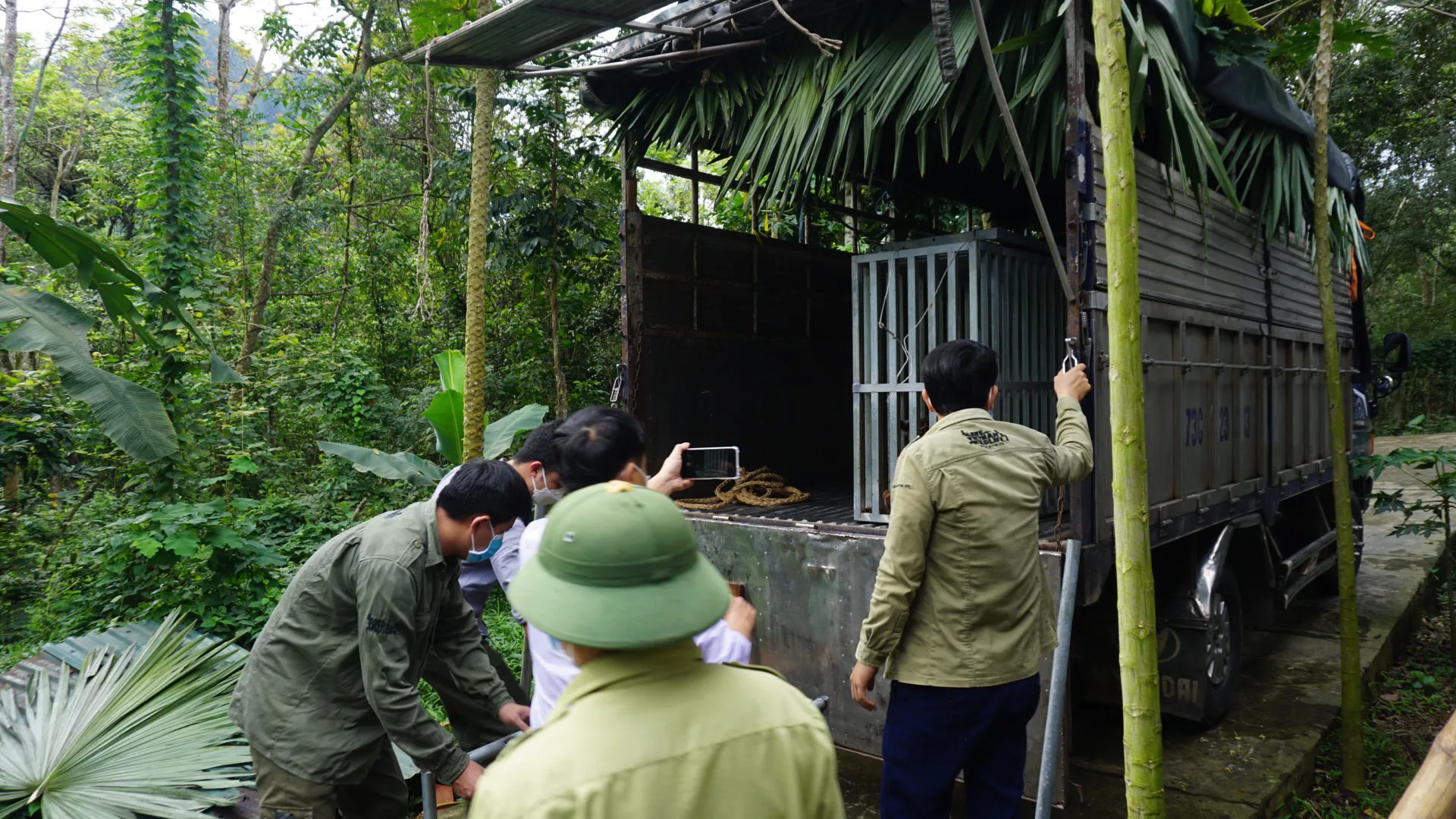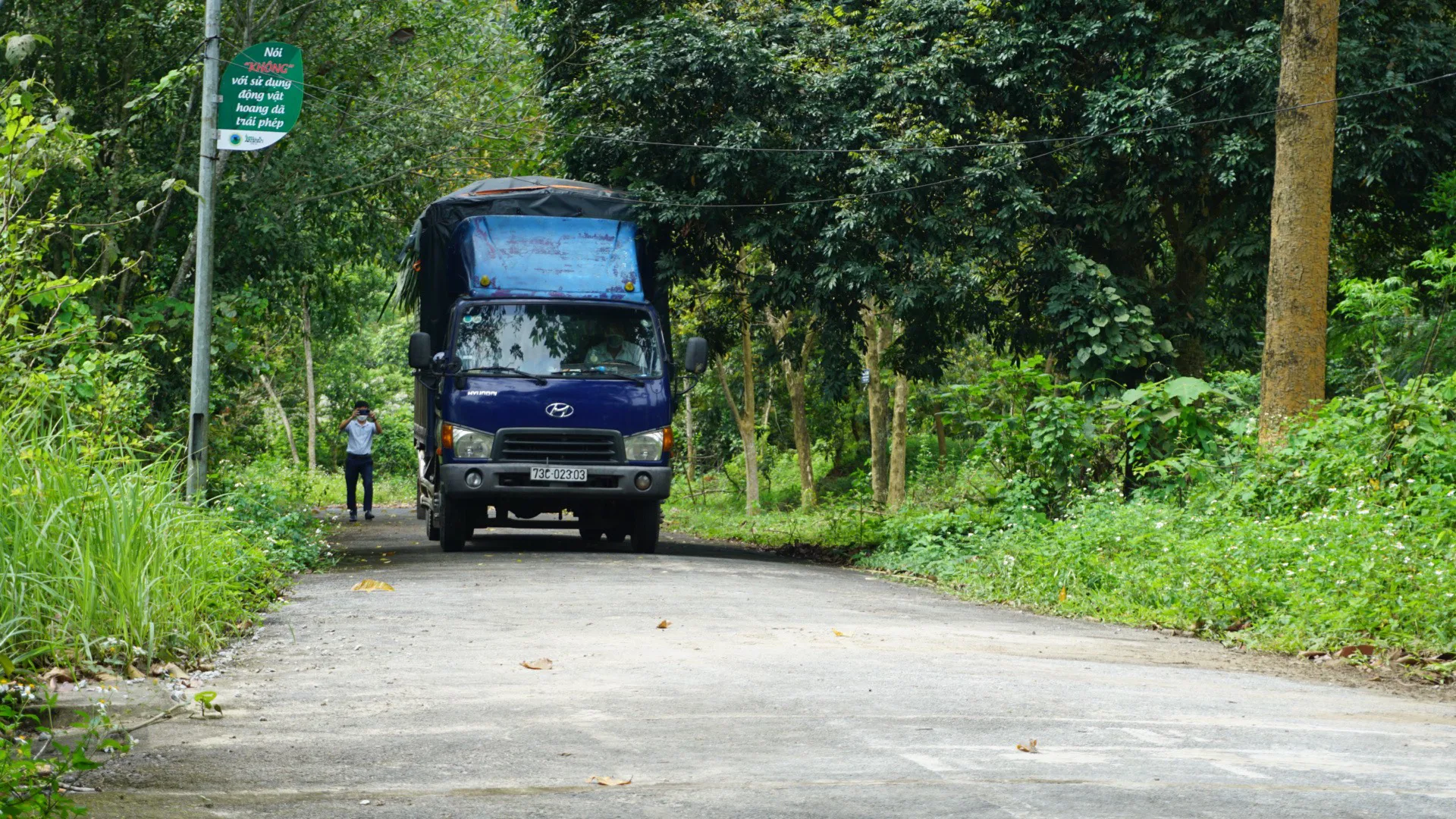Seven Indochinese tigers to be raised in world heritage site
The tigers would be released to the semi-natural habitat after some time.
Seven Indochinese tigers will be raised in the Phong Nha-Ke Bang National Park, a UNESCO-recognized world heritage site, in central Vietnam.
| Tigers to be transferred to new place on Mar 22. Photos: SVW |
The tigers, which were seized during a raid on wildlife traffickers in Nghe An Province in August 2021 when they were around one month old, now weigh from 56kg to 64kg/each.
They were transferred from Pu Mat National Park in Nghe An and Save Vietnam’s Wildlife (SVW) rescue center on March 22 and reached the new place on the same day.
SVW Founder and Executive Director Nguyen Van Thai said the tigers cannot be released back to their natural habitat as captivity has crippled their hunting and surviving skills in the wild. “The transfer to licensed units with good care conditions that ensure animal welfare is the best solution for these tigers,” Thai said, adding that opening to visitors is a financial resource to support the care of these tigers while raising public awareness of wildlife conservation.
Tran Xuan Cuong, Director of Pu Mat National Park, said conditions in the park are no longer suitable for raising the tigers as they have grown up. And Phong Nha-Ke Bang is good for them in the long run.
The feeding of the tigers in Pu Mat for the past seven months cost nearly VND900 million (US$39,000) and it was paid by SVW.
| The tigers on way to new home. |
To serve the transfer, the tigers were fed and trained for two months to help them get used to the new captivity. Dang Thanh Tuan, the caretaker at the Wildlife Rescue Center of the Pu Mat National Park, said the tigers were kept in a cage of 1.2 meters long with food and animal medical devices.
Meanwhile, the Phong Nha-Ke Bang National Park has prepared facilities and caretakers to ensure the new feeding is consistent with the ecological habits of the tigers in available conditions.
It requires more time to consider the tigers’ ability and conditions before releasing them into the semi-natural habitat, said Pham Hong Thai, Director of the Phong Nha-Ke Bang National Park, adding that good care would be made to ensure their welfare.
Indochinese tiger (Panthera tigris corbetti), native to the tropical and subtropical forests of Southeast Asia with an average life span in the wild of 10 to 15 years, listed as endangered on the IUCN Red List of Threatened Species, though some researchers say they should be considered critically endangered instead.



.JPG)







